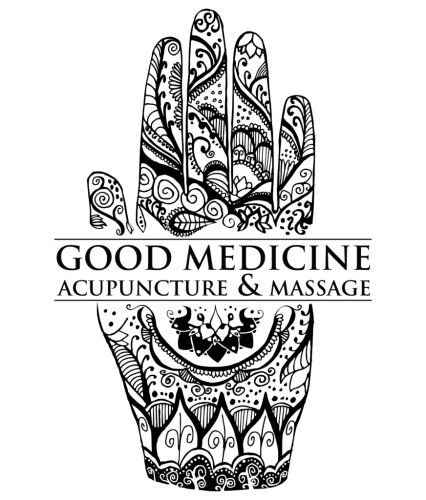Traditional Chinese Medicine and Substance Use Disorder
“The initial journey towards sobriety is a delicate balance between insight into one’s desire for escape and abstinence from one’s addiction.”
For some of us, the idea of addiction can be difficult to understand. It can be painful to watch those you care about willfully subject their mind and body to damaging activities like substance use.
It is important to remember that the habitual use of a substance is out of the control of the user. Even when they desperately want to stop, social, environmental, behavioral and biological factors can pull them back into the cycle of addictive behaviors.
For example, someone with a family history of addiction, exposure to use at a young age, or possession of unresolved trauma might be more prone to developing a reliance on intoxicating substances.
Substance abuse has no set age, gender, or income biases. Addicts can be kind people with heavy hearts just as often as deeply broken or even high functioning.
Providing knowledge and unconditional support to those who suffer from Substance Use Disorder can be life saving as it is never too late to seek help.
“New beginnings are often disguised as painful endings.“
What is Substance Use Disorder?
The Diagnostic and Statistical Manual of Mental Disorders, or DSM-5 defines Substance Use Disorder as, “a complex condition in which there is an uncontrolled use of a substance despite harmful consequence.”
Typically, a person with Substance Use Disorder may:
- Become physically dependent on a substance and exhibit impaired control
- Demonstrate social impairment and risky use behaviors
- Develop a tolerance or a need for increased dosage of the substance to produce a desired effect
- Experience severe or life threatening elements of withdrawal
Oftentimes, when an individual discontinues the use of harmful substances, the ensuing withdrawal symptoms can cause significant distress. People who suffer from addiction need assistance to stop substance use safely and effectively.
We cannot emphasize enough the importance of not forcing a user to stop cold turkey. This can sometimes be highly dangerous depending on the addiction.
Recovery from addiction is a process, not just mentally but physically as well and should be taken one day at a time – often under the supervision of a medical professional.

How TCM Can Help with Substance Abuse
Studies have shown that acupuncture can assist in the recovery process by lessening cravings and withdrawal symptoms. Withdrawal symptoms can come in many forms including anxiety, depression, weight gain, confusion, illness, insomnia, fatigue, nausea and more. A user may not even understand that their symptoms are related to withdrawal and may seek drugs or alcohol to relieve their symptoms.
With regular acupuncture or herbal medicine treatments, an addict can find ongoing symptom relief but also mental support.
Having a check-in with their acupuncturist can help them stay on task and understand what symptoms to watch for and avoid potential triggers that could lead to relapse.
Acupuncture and herbal medicine can be utilized to promote internal detoxification, increased relaxation and endorphin production. Increased endorphin release provides the body a chance to better physically cope with the stress of recovery and the detoxification process. Not only does acupuncture assist in the physical aspects of addiction recovery, it also aids in equally important aspect of mental wellness.
Cognitive Behavioral Therapy & Rational Emotive Behavior Therapy
In addition to Acupuncture and Chinese Medicine, Cognitive Behavioral Therapy and Rational Emotive Behavior therapy are highly effective in treating substance use.
CBT is a successful course of treatment for those suffering from many different kinds of substance use.
CBT assists individuals in identifying unhealthy patterns and triggers while cultivating coping skills to aid in recovery.
RET works well alongside CBT as it helps people with Substance Use Disorder in recognizing harmful or painful thought patterns and emotions that can hinder one from improving their wellbeing.
Remember, recovery is an ongoing process. It is something you do each and every day. It is a decision you make every morning when you wake up. It isn’t driven by motivation – it is driven by dedication. It is a commitment to yourself and to the people that care about you. It is a goal and a mindset and it isn’t easy but that is what makes it so worth it.
Seeking Support is the First Step to Beating Addiction
By combining Traditional Chinese Medicine and the above therapeutic modalities, people seeking recovery may successfully heal from Substance Use Disorder and greatly improve their quality of life. By addressing a person’s holistic wellbeing, Chinese Medicine aids in a person’s healing from detoxification to recovery. Education and access to evidence based treatments are the first steps in de-stigmatizing substance use and other issues of mental health. It is never to late, or too early, to begin the healing process.
You Also Might Like…
Benefits of Springtime Massage
Benefits of Springtime MassageWhen preparing our bodies to embark on our outdoor adventures, enhancing a solid mind, body, and spirit is a great place to start.Spring is in full swing! With the (almost) consistent Montana sunshine, many of us are excited to hit the...
Chinese Medicine: Our Formulas
Chinese Medicine Formula UsesLearn the basic uses of some of our most popular Chinese Medicine formulas that we use at Good Medicine.Medicinal herbs and formulas are used as a complementary medicine to acupuncture and massage. Holistic health is an ongoing process...
Springtime and Chinese Medicine
Springtime & Chinese MedicineSpring has sprung! As we enjoy the evermore present sunshine, warmer weather, and longer daylight hours, our bodies undergo a similar awakening as the natural systems in our beautiful Montana environments.The springtime rebirth and revival...

